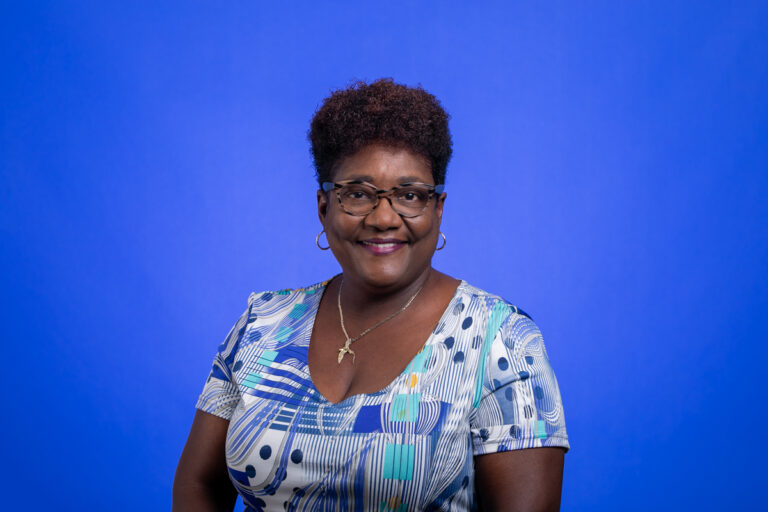Decade after decade the US, Canada and England have been the top choices for Bermudians heading off to university. But, with British passports accessible to most of us is that changing? Does citizenship make it easier to move to a country as a student?
The short answer is “not really”, according to Sandra Dill of Mirrors.
“US colleges and Canadian colleges give students visas upon acceptance so it’s pretty straightforward once they are admitted. In the UK, of course, Bermudians don’t need a visa if they have a British passport but is it easier to go one way or the other? Not necessarily.”
Mirrors’ goal is to “empower young people to reach their potential through personal transformation”.
As the programme’s Peer Forward manager, Ms Dill provides resources and guidance for students at The Berkeley Institute and CedarBridge Academy as they transition from high school to college and employment.
For anyone considering the UK, she lets them know upfront that getting into university there is more challenging if they haven’t already completed a UK-type programme.
“If a student has done A-levels, if they’ve done [the International Baccalaureate] programme or anything like that, they can possibly get right into a UK business degree programme. But, if they have not gotten A-levels or IB, or extended type work, they will likely have to start off with a foundation year programme.”
While most students still head to the US and Canada for university, more are headed across the pond than in past years. Tuition is one of the drivers.
“The UK universities, the majority of them, because they’re all government-run universities, are $12,000 for the year,” Ms Dill said. In the US, community colleges begin at around $25,000, while universities can run as high as $60,000.
“And then there’s a difference whether it’s a public or private institution. So there’s a bigger variation in price range in the US, but there’s still quite a few students who go to the US because we’re used to travelling to the US for vacations. It’s close, we have family there and so forth.
“In Canada they really differentiate a lot between colleges and universities. Colleges offer diplomas and some undergraduate degrees and basically start at around $17,000, whereas universities like Western University and University of Toronto, they are $40,000 and up.”
Most of the children she sees through the Mirrors programme leave high school and head straight into university. “Some will work and go to the Bermuda College because the Bermuda College is around $3,000 for the year. So it’s a great way to start. They can go to the Bermuda College, earn transferable credits while there for a year or two. When they’re ready to go to university in the US – if that’s where they choose to go – they can transfer those credits and only do two years as opposed to four.”
During February, Mirrors hosted a programme called Finding Funds for College. As the name implies, the idea is to let people know about all the options there are. Many students apply for scholarships; some parents take out a loan.
“Many people have savings,” Ms Dill said. “They may have a Heritage savings plan or something like that and that probably would help fund [costs].”
Most important to remember is that tuition is only part of the cost of education.
“I’m not talking about accommodation, I’m not talking about the airfare to get there, I’m not talking about books, I’m not talking about laptops, iPads and subscriptions. There are lots of fees attached,” Ms Dill added.
But, there’s more than cost to consider when deciding which country to study in.
“For some it’s just a matter of what they’re comfortable with. Some people don’t want to go all the way to England to go to school. Some have family in the US or Canada, some have siblings who have gone before them so they continue that legacy. There are multiple reasons that one would choose to go to the US or Canada instead.”
Although it depends on the school, getting into a North American university can be “a bit easier”.
“They look more holistically at the individual whereas in the UK, their focus is mainly your grades and your personal statement. And your personal statement is very focused on how prepared you are for the programme that you’re applying to.
“In the UK, you are not applying to the college per se, you’re applying to the programme at the college. In the US you can apply to, say Georgia State University, and go into any programme. When you’re applying to the UK, you’re applying directly to the programme and the entry requirements for the programme are what get you in.”
In the US, students embark on a four-year undergraduate programme versus three years in Britain. “Your first year of university in the US you are doing courses that will prepare you for your degree. In the UK you go in prepared for your degree. That’s what makes it a little bit more challenging, because if you want to study finance and you’ve not taken any finance courses in high school, then you will need to take those courses in what they call their foundation year to be able to enter into the degree.
“So, when you’re going to the UK, one of the most important things is to be pretty clear about the degree you want to study. And that’s what the essays are about: what it is you want to study and why you are a good fit for that programme.”
A big bonus to Bermudian students in the UK is that they can get to work in their profession as soon as they graduate. “You don’t need a work visa because you’re a British citizen whereas in the US, in Canada, you will have to apply for a visa and there’s no guarantee you’re going to get it.”

